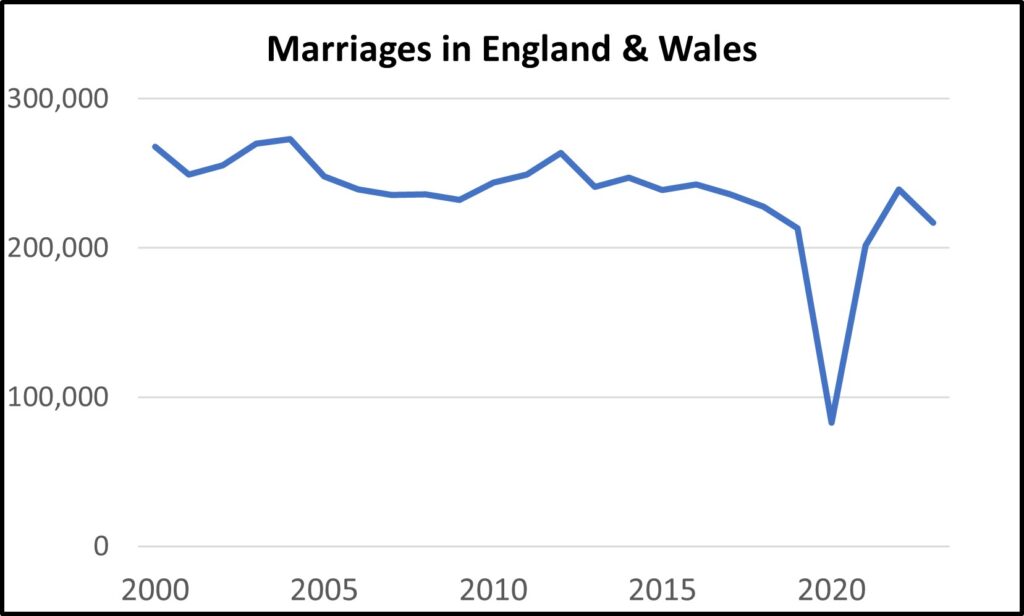The 9% decrease in 2023 opposite-sex weddings, reported today by the Office for National Statistics, conceals the long tail of lockdown.
At least 100,000 couples whose weddings were cancelled during lockdown may still not have rearranged their weddings.
Compared to 2019, the year before lockdown, there has been a combined surplus of just 18,000 weddings in the three years post-lockdown. This surplus falls far short of the 130,000 drop in weddings during 2020, the highest drop in western Europe due to the draconian restrictions.
“That so many couples appear to have abandoned their wedding plans is incredibly sad for them, their friends and families. But it may also have a serious knock-on effect on commitment.
There is an important psychological purpose to weddings. When couples announce their plans in public to the rest of the world, they receive support and affirmation for the most risky decision of their lives, to choose one person and reject all others.
We retain hope that the cancellation of wedding plans among so many couples may be a temporary postponement while couples have babies or buy a property.
There are no guarantees in relationships. But all our data shows that couples who marry stack the odds in favour of achieving the reliable love they seek.
Although divorce rates are now the lowest since 1970, Britain has the highest recorded levels of family breakdown. Nearly half of all teenagers do not live with both natural parents. This has knock-on effects on child poverty, crime, education and mental health.
Until our national policies encourage couples to make the formal commitment of marriage, this situation will get worse.”
Harry Benson, Research Director, 18 November 2025

